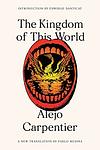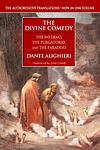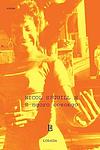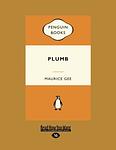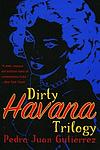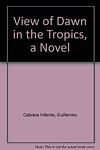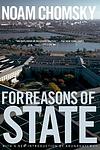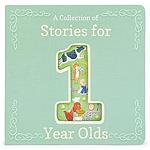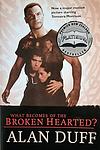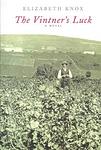The Greatest New Zealander, Cuban Books of All Time
Click to learn how this list is calculated.
This list represents a comprehensive and trusted collection of the greatest books. Developed through a specialized algorithm, it brings together 300 'best of' book lists to form a definitive guide to the world's most acclaimed books. For those interested in how these books are chosen, additional details can be found on the rankings page.
Genres
Countries
Date Range
Reading Statistics
Click the button below to see how many of these books you've read!
Download
If you're interested in downloading this list as a CSV file for use in a spreadsheet application, you can easily do so by clicking the button below. Please note that to ensure a manageable file size and faster download, the CSV will include details for only the first 500 books.
Download-
1. The Lost Steps by Alejo Carpentier
The novel tells the story of a disillusioned American musicologist who leaves his life in New York City to embark on a journey to an untouched, primitive part of the Amazon jungle in South America. He is in search of ancient musical instruments. Along the way, he experiences a spiritual and philosophical transformation as he reconnects with nature and the primal roots of humanity. He also falls in love with a native woman, further deepening his connection to the land and its people.
-
2. Three Trapped Tigers by Guillermo Cabrera Infante
Three Trapped Tigers is a novel that explores the nightlife, culture, and history of Havana, Cuba, during the 1950s. The narrative is fragmented and experimental, employing a range of styles and techniques, including stream-of-consciousness, wordplay, and parody. The book presents a vivid and humorous depiction of the city and its inhabitants, while also offering a critical examination of the political and social conditions of the time.
-
3. The Bone People by Keri Hulme
"The Bone People" is a complex, emotional novel that explores the lives of three characters - a reclusive artist, a young mute boy, and his adoptive father - in New Zealand. The narrative delves into themes such as Maori culture, love, violence, and isolation while showcasing the struggle of these individuals as they try to form a family unit despite their personal traumas and societal pressures. The book's unique blend of prose and poetry, along with its blend of English and Maori language, adds to its depth and richness.
-
4. The Kingdom of This World by Alejo Carpentier
"The Kingdom of This World" is a historical novel that explores the tumultuous period of the Haitian Revolution and its aftermath through the eyes of a slave named Ti Noël. The narrative weaves together elements of magical realism and historical fact, highlighting the brutalities of slavery, the struggle for freedom, and the rise and fall of leaders. The novel also delves into the themes of power, corruption, and the cyclical nature of history, while showcasing the rich culture and folklore of Haiti.
-
5. Before Night Falls by Reinaldo Arenas
"Before Night Falls" is an autobiographical work that chronicles the life of a young Cuban man growing up during the political turmoil of the Cuban Revolution. The protagonist, a rebellious writer and poet, grapples with his sexual identity in a society that is deeply homophobic. Despite facing persecution, imprisonment, and exile, he remains defiant and committed to his art and personal freedom. His story provides a candid and deeply personal perspective on the harsh realities of life under Fidel Castro's regime.
-
6. Dreaming in Cuban by Cristina García
"Dreaming in Cuban" is a multi-generational narrative that explores the lives of several women from a Cuban family, spanning from the 1930s to the 1980s. The story oscillates between Cuba and the United States, reflecting on the Cuban revolution, exile, and identity. Through the perspectives of each character, the novel delves into themes of political turmoil, family dynamics, and personal struggles amidst cultural shifts and geographical displacement.
-
7. Paradiso by José Lezama Lima
"Paradiso" is a dense and lyrical novel that delves into the life of a young Cuban man named José Cemí, exploring his intellectual and sensual coming-of-age against the backdrop of early 20th-century Havana. The narrative is rich with poetic language and complex imagery, weaving together themes of family, sexuality, and the search for identity. Through a series of vivid, dreamlike episodes, the protagonist's personal growth is paralleled with the cultural and historical evolution of Cuba itself, presenting a tapestry of philosophical reflections and a deep dive into the nature of reality, time, and existence.
-
8. Explosion In A Cathedral by Alejo Carpentier
The novel is a historical narrative set in the Caribbean during the time of the French Revolution, following the lives of a family caught in the tumult of the era. It explores the impact of European political upheaval on the colonies, as the protagonist becomes involved with historical figures and events, including the revolutionary missions of Victor Hugues. The story delves into themes of power, freedom, and the complex interplay between history and the individuals who live through it, painting a vivid picture of the colonial world and its transformation under the forces of revolution and counterrevolution.
-
9. Faces In The Water by Janet Frame
"Faces in the Water" is a chilling exploration of mental illness, based on the author's own experiences in psychiatric hospitals. The protagonist is a woman who is institutionalized after a suicide attempt and suffers through the dehumanizing treatment of the era, including electroshock therapy. The narrative is a surreal and fragmented reflection of her mental state, as she grapples with her sanity and the inhumane conditions of her confinement. The novel serves as a powerful critique of the mental health system and the societal attitudes towards mental illness in the mid-20th century.
-
10. Sóngoro cosongo by Nicolás Guillén
"Sóngoro cosongo" is a collection of poems that celebrates Afro-Cuban culture. The author explores the richness of the Afro-Cuban experience, using the language and rhythms of son music and Afro-Cuban dialect to bring his subjects to life. Themes include racial identity, social inequality, and the cultural fusion of Spanish and African influences in Cuba. The author's use of humor and satire also serves to critique the racial prejudices and social injustices of his time.
-
11. A Man Lay Dead by Ngaio Marsh
"A Man Lay Dead" is a captivating murder mystery set in a country house, where a group of guests gather for a weekend of games and entertainment. When a harmless game of murder turns into a real-life crime, Inspector Alleyn is called in to solve the case. As he delves into the lives and secrets of the eccentric characters, he uncovers a web of deceit, jealousy, and hidden motives. With a clever plot, intriguing characters, and a touch of humor, this book keeps readers guessing until the final twist.
-
12. Plumb by Maurice Gee
In "Plumb" by Maurice Gee, readers are introduced to a small New Zealand town called Waimaru, where a tragic accident occurs, leaving a young boy dead. The aftermath of this event reveals the dark secrets and hidden tensions within the community, as the lives of various characters intertwine and unravel. With beautifully crafted prose and a keen exploration of human nature, Gee delves into themes of guilt, loss, and the complexities of human relationships, creating a gripping and thought-provoking narrative.
-
13. Badjelly The Witch by Spike Milligan
The book is a whimsical children's story that follows the adventures of siblings Tim and Rose as they search for their lost cow, Lucy. Their quest leads them into an enchanted forest where they encounter a host of magical creatures, including giants, a fairy, and an evil witch named Badjelly who can turn people into sausages with her magic wand. With courage and the help of their new fantastical friends, the children must outwit Badjelly and rescue their beloved cow, embarking on a journey filled with humor, whimsy, and the triumph of good over evil.
-
14. Dirty Havana Trilogy by Pedro Juan Gutierrez
This book is a raw and gritty portrayal of life in Havana, Cuba during the economic collapse of the 1990s. The story is narrated by a former journalist turned hustler who lives in the city's slums. The protagonist survives through a series of odd jobs and illegal activities, as he navigates through a world of poverty, violence, and corruption. The narrative is filled with graphic depictions of sex, drugs, and the struggle to survive, providing a stark contrast to the romanticized image of Havana.
-
15. The Luminaries by Eleanor Catton
Set during the New Zealand Gold Rush of the 19th century, this novel follows Walter Moody, a prospector who stumbles upon a secret meeting of twelve local men who are trying to solve a series of unsolved crimes. As the story unfolds, it becomes clear that the crimes, which include a rich man's disappearance, a prostitute's attempted suicide, and a huge fortune found in a drunkard's cottage, are all interconnected. The novel's complex narrative structure, which uses astrology to organize its characters and events, adds another layer of intrigue to the story.
-
16. The Golden Age by José Martí
"The Golden Age" is a heartfelt coming-of-age story set in the late 19th century, following the life of a young boy named José Martí. Through his eyes, readers witness the challenges and triumphs of growing up in a tumultuous time in Cuba's history. Martí's journey is marked by his unwavering passion for justice, his deep love for his homeland, and his relentless pursuit of freedom and equality. This poignant narrative explores themes of identity, patriotism, and the power of hope, leaving readers with a profound understanding of the human spirit and the enduring fight for liberty.
-
17. View Of Dawn In The Tropics by Guillermo Cabrera Infante
The book is a unique tapestry of Cuban history and culture, presented as a series of vignettes that blend fact with fiction, reality with surrealism. Through a mosaic of brief, often poetic narratives, the work captures the essence of life in the tropics, marked by the rise and fall of revolution, the ebb and flow of political tides, and the personal stories that define the human experience within this vibrant setting. The fragmented structure mirrors the tumultuous history of Cuba itself, offering glimpses into the island's colonial past, its struggle for independence, and the ongoing complexities of its social and political identity.
-
18. Reasons Of State by Alejo Carpentier
"Reasons of State" is a satirical novel that delves into the life of a Latin American dictator who clings to power through manipulation and the ruthless suppression of opposition. Set against the backdrop of early 20th-century political turmoil, the narrative explores themes of corruption, decadence, and the absurdity of authoritarian regimes. The protagonist, a caricature of the archetypal tyrant, navigates through a series of farcical and tragic events, revealing the hollow core of his regime's pomp and circumstance. The novel critiques the self-serving justifications of those in power, who often cloak their actions under the guise of state necessity and progress, while their personal and political decisions lead to the suffering and disenfranchisement of the people they rule.
-
19. Poems Of Nicolás Guillén by Nicolás Guillén
This collection of poetry delves into the rich tapestry of Afro-Cuban culture, exploring themes of social justice, racial identity, and political struggle. The poet employs a unique blend of lyricism and vernacular language, often incorporating the rhythms of son and Afro-Cuban music, to give voice to the marginalized and oppressed. Through vivid imagery and poignant commentary, the poems reflect on the complexities of Cuba's history and the poet's own experiences, offering a powerful testament to the resilience of the human spirit in the face of adversity.
-
20. The Short Stories by Katherine Mansfield
The book is a collection of short stories that delve into the complexities of human relationships and emotions, often focusing on moments of epiphany in the lives of ordinary people. Set primarily in the early 20th century, the stories explore themes such as love, loss, and the search for meaning amidst the mundane. The author's keen observations and subtle wit bring to life a range of characters, from lonely spinsters to disillusioned couples, each portrayed with a deep sense of empathy and psychological insight. Through her masterful use of language and narrative structure, the author captures the fleeting impressions and nuances of everyday existence, leaving a lasting impact on the reader.
-
21. Maitreya by Severo Sarduy
"Maitreya" is a novel that delves into the themes of transformation, identity, and transcendence, set against the backdrop of a tumultuous period in Cuba. The narrative follows the journey of a protagonist who is both a revolutionary and a seeker of spiritual enlightenment, intertwining political upheaval with mystical experiences. As the character navigates through a world of chaos and change, the story explores the convergence of Eastern philosophies and Western ideologies, ultimately questioning the nature of reality and the potential for rebirth in the midst of societal collapse. The novel's rich, poetic language and complex symbolism offer a multifaceted examination of the human condition and the search for meaning.
-
22. The Ill Fated Peregrinations Of Fray Servando by Reinaldo Arenas
The book is a fictionalized account of the life of Fray Servando Teresa de Mier, a real-life Dominican friar from the 18th century. It follows his numerous escapes from colonial authorities across Latin America and Spain after he delivered a controversial sermon in Mexico City. The narrative, infused with magical realism, portrays Fray Servando's adventures and misfortunes as he becomes a symbol of freedom and resistance against oppressive regimes. His journey is marked by a series of bizarre and fantastical encounters, reflecting the author's critique of totalitarianism and exploration of the themes of liberty, identity, and the absurdity of political persecution.
-
23. What Becomes Of The Broken Hearted? by Alan Duff
"What Becomes Of The Broken Hearted?" by Alan Duff is a powerful and gritty novel that delves into the lives of a Maori family living in New Zealand. Set against a backdrop of poverty, violence, and racism, the story follows the struggles and triumphs of Jake, a young man desperate to escape the cycle of despair that has plagued his family for generations. With raw and unflinching honesty, the book explores themes of identity, love, and redemption, painting a vivid and haunting portrait of a community grappling with the consequences of a broken heart.
-
24. The Vintner's Luck by Elizabeth Knox
"The Vintner's Luck" is a captivating novel that follows the life of a young vintner named Sobran, who forms an unlikely friendship with an angel named Xas. Set in 19th century France, the story explores themes of love, passion, and the pursuit of dreams as Sobran navigates the challenges of winemaking and the complexities of his relationships with both mortals and celestial beings. Through beautifully descriptive prose and rich character development, the book delves into the intricacies of the human spirit and the intertwining of the mundane and the divine.
-
25. Live Bodies by Maurice Gee
In "Live Bodies" by Maurice Gee, a small town in New Zealand becomes the setting for a mysterious and unsettling series of events. As the townspeople grapple with their own secrets and desires, a young girl named Alice discovers a hidden power within herself. As tensions rise and the lines between reality and fantasy blur, Alice must confront the darkness that lurks beneath the surface of her seemingly idyllic community. With rich prose and a captivating plot, "Live Bodies" explores themes of identity, power, and the complexities of human nature.
Reading Statistics
Click the button below to see how many of these books you've read!
Download
If you're interested in downloading this list as a CSV file for use in a spreadsheet application, you can easily do so by clicking the button below. Please note that to ensure a manageable file size and faster download, the CSV will include details for only the first 500 books.
Download


